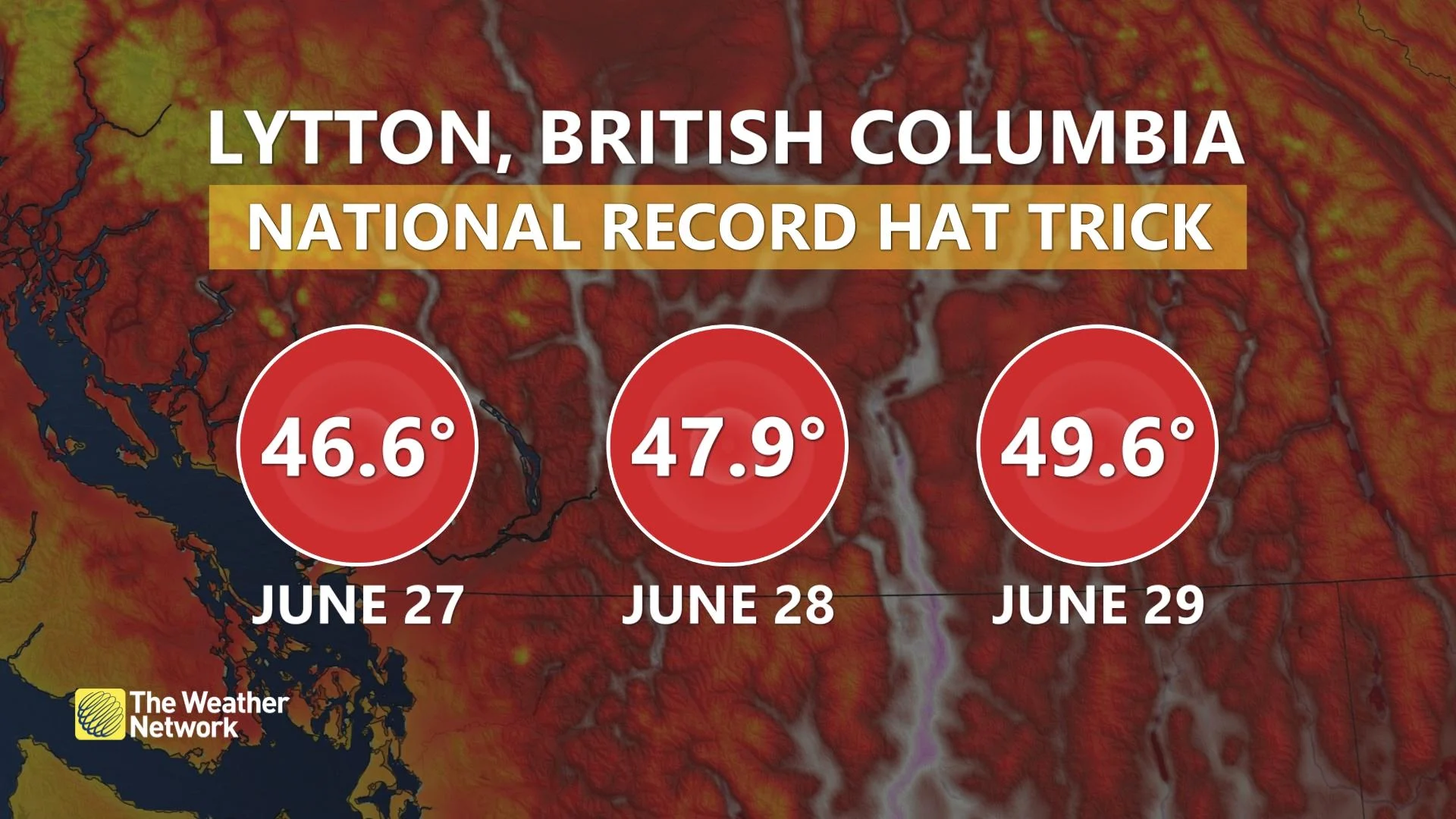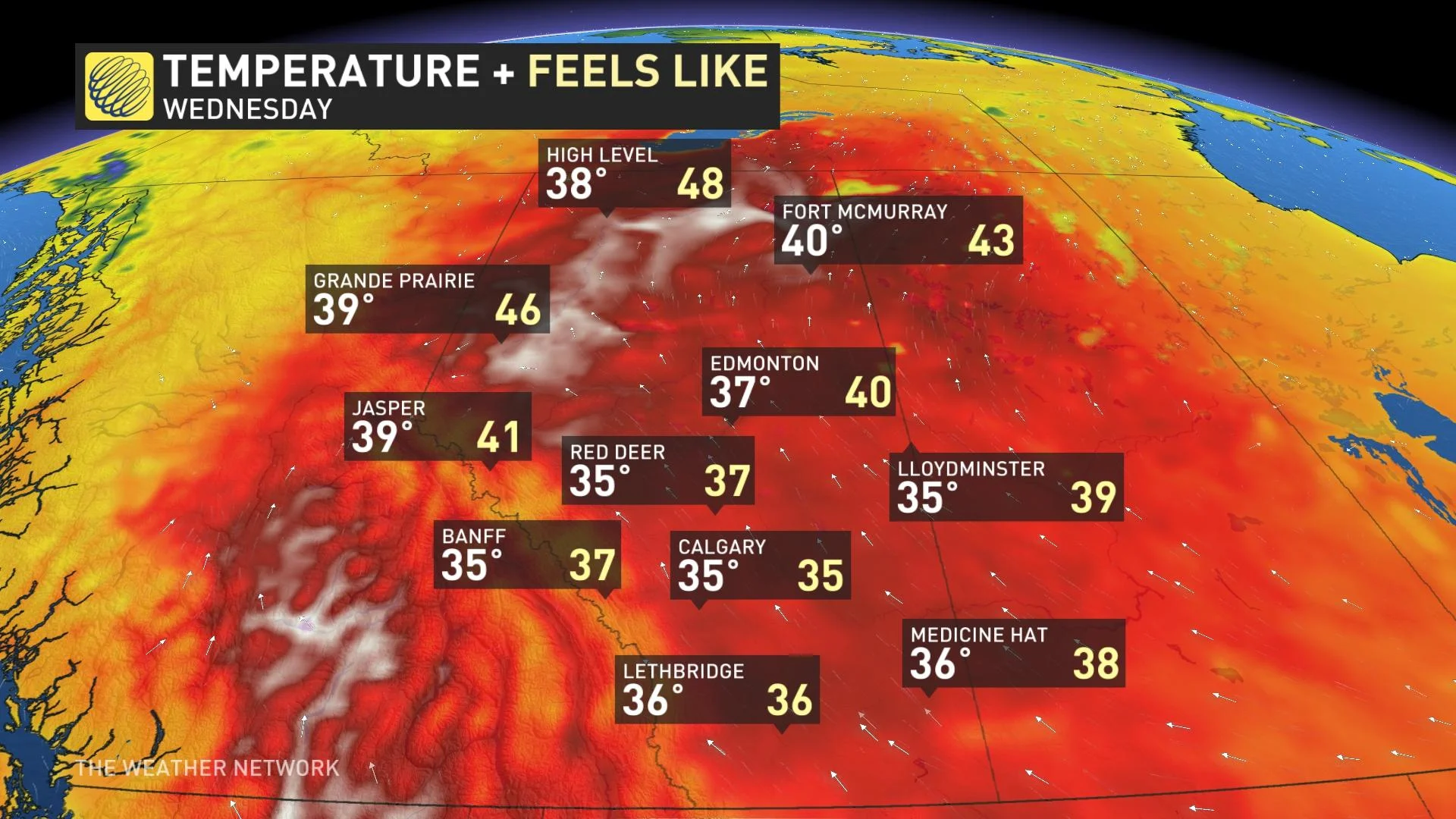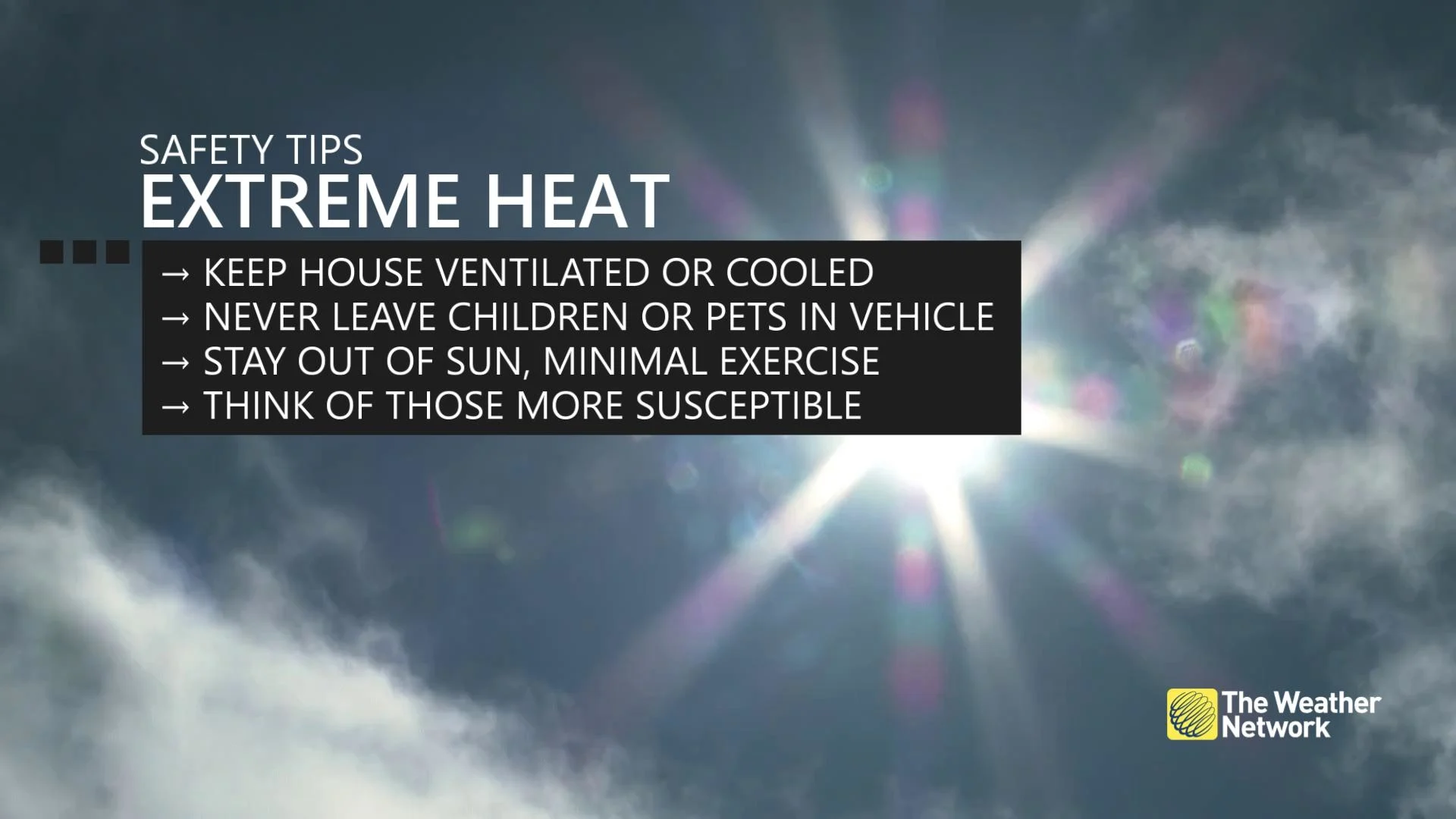
Dangerous heat keeps a hold on B.C. Interior as it shifts away from coast
As records continue to shatter under the historic heat wave in the West, some good news is on the horizon for parts of B.C. as the hot temperatures shift further into Alberta.
For a third day in a row, the British Columbia community of Lytton has recorded the country's highest temperature on record -- hitting 49.6°C Tuesday, surpassing its previous records of 47.9°C on Monday and 46.6°C set on Sunday.
Lytton, B.C., pushed ever so closer to 50°C (49.6°C) for the first time in Canadian history on Tuesday, and all-time temperatures were reached in many communities across B.C. The community broke its previous record of 47.9°C on Monday and 46.6°C on Sunday.

Humidex values hit around 50 in the Fraser Valley, spectacularly rare for B.C. and Canada. Since Friday, several all-time and/or monthly highs, as well as dozens of daily records have been broken.
RELATED: Open burning to be banned across B.C. as heat wave hits
Now, some good news.
A little bit more of the marine air will advance into the South Coast, so think mid-30s for Vancouver Island and the Lower Mainland. Which, up until now, was a benchmark for a hot day.
But, travel up the Sea-to-Sky, or head east on the TransCanada, we're in for another day of severe, dangerous heat.
WEDNESDAY
By Wednesday, a sense of normalcy returns to the temperatures in Squamish. Note the fresh, marine air that’s pushed across Victoria -- an incredible feeling after temperatures pushed to 40°C for the first time.

On Wednesday, temperatures in the Northwest Territories will tip over 40°C south of Yellowknife -- and if captured by a weather station, this will be the first time in recorded history.
Yohin Lake soared to 38.1°C on Sunday, making it the second warmest June temperature on record for the territory.

All-time records have fallen across parts of Alberta, as well, and will likely continue to do so as the heat wave peaks Wednesday for the province.

RECORD POWER DEMAND REACHED, ACCORDING TO BC HYDRO
HEALTH IMPACTS
The extreme heat should be taken seriously as it could harm your health and cause heat-related illnesses.
“Heat-related illness is the result of your body gaining heat faster than it can cool itself down,” states HealthLink BC on their website. “Those at increased risk for heat-related illness include: infants and children, people 65 years of age or older, and people who do a lot of physical activity or work in a hot environment. In most cases, heat-related illnesses are preventable.”

Heat stroke is a life-threatening medical emergency. Call 9-1-1 or other emergency medical services as soon as you suspect or see the signs of heat stroke in an individual. Click here to learn more about heat stroke.
Heat stroke shares some symptoms with heat exhaustion, but the most acute to watch out for (according to Canadian Centre for Occupational Health and Safety) are:
Hot, dry skin or profuse sweating
Confusion
Loss of consciousness
Seizures
Very high body temperature
Heat stroke can follow on from untreated heat exhaustion, or can happen without little or no warning. To learn more about how extreme heat can impact the human body, click here.
HUMID VS. DRY HEAT: WHY THE DIFFERENCE MATTERS
RELATED: Climate change boosted heat deaths by more than a third
HUMAN-CAUSED FIRES A BIG CONCERN
The heat has also ignited fears of human-caused wildfires. The B.C. Wildfire Service says nothing larger than a campfire will be allowed across the province as scorching temperatures are expected to ramp up.
Residents are urged to exercise caution when outdoors. There are numerous ways human activity can start wildfires, some of which include open burning, the use of engines or vehicles, dropping burning substances such as cigarettes or the use of fireworks. The most important factor of person-caused fires is that they are preventable.
Residents are also reminded to check with local authorities before lighting a fire of any size.
Click here for current fire bans and restrictions in Alberta
Click here for current fire bans and restrictions in Saskatchewan
Click here for wildfire updates in the Northwest Territories
ADDITIONAL SAFETY MEASURES IN VANCOUVER
The City of Vancouver implemented additional measures to protect residents facing compounded challenges of COVID-19 and the heat. Some of which include:
Community centres in the Downtown Eastside will offer water to patrons requesting it or in need of hydration, as well as supporting patrons with sun block. If you are out and about, you can fill up your water bottle at one of over 200 drinking fountains.
The City’s Non-Market Housing Operations is implementing a hot weather support plan for tenants, which includes increased wellness checks, and provision of bottled water and table-top fans for those residents not able or wanting to leave their rooms. Additionally, air-conditioned common area spaces will be available for residents to seek respite from the heat. Residents can find a list of the City’s 10 air-conditioned community centres and all library locations have air-conditioning at vancouver.ca/hot-weather.
Sharing heat safety messaging with operators of many of Vancouver’s SROs and requesting that they check on residents who are vulnerable to heat.
Emergency service personnel and volunteers will be vigilant for people who may be suffering from or are at risk of heat exposure.
The city will be providing additional information via Vancouver.ca to ensure people are aware of heat warnings and can access the information they need.
Be sure to check back as we continue to monitor this potentially life-threatening heat wave.
With files from Tyler Hamilton, a meteorologist at The Weather Network.
Thumbnail courtesy of Michelle Valancius.











